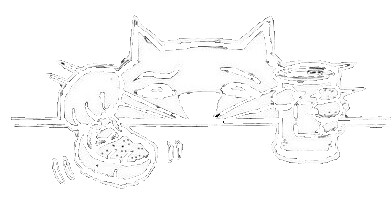Jphono1, Secret Monkey Weekend, It’s Snakes
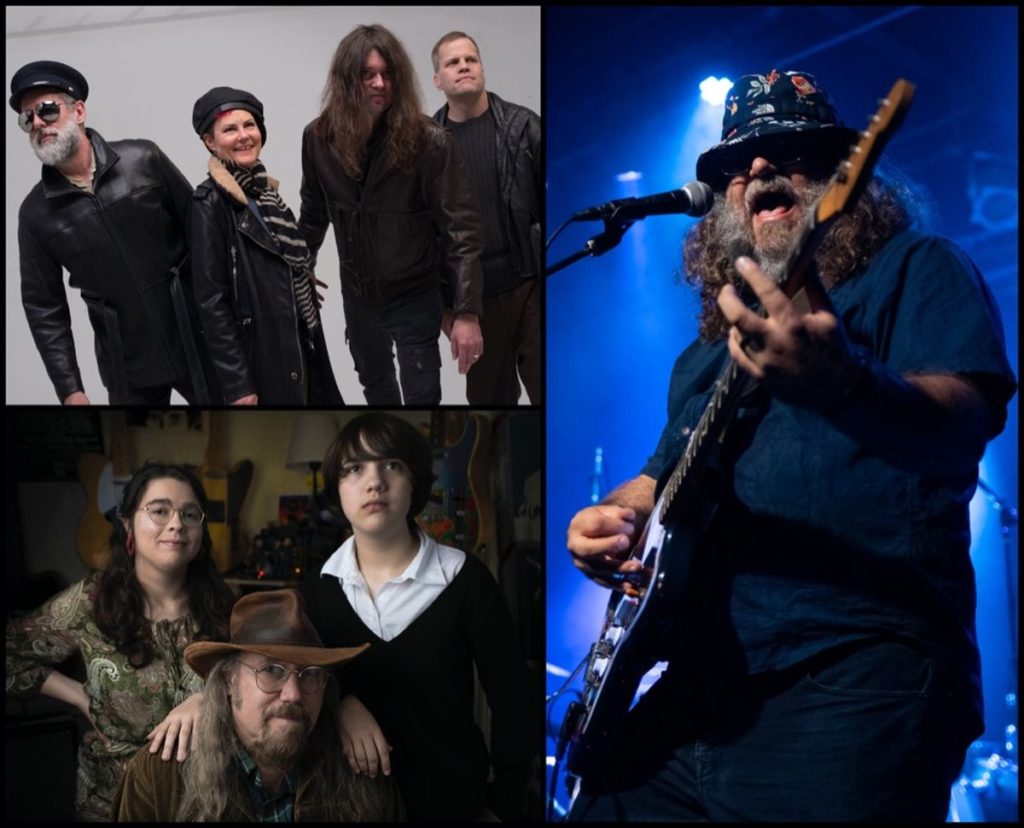
John Harrison has been in something of a sustained period of creative and eclectic output via his shape-shifting outfit, Jphono1. This time John Harrison has rejoined with his current rhythmic collaborators, John Crouch (Caltrop, Solar Halos, Kerbloki) and Jimmy Thompson (Randall Brice Bickford, North Elementary), for his fourth record in the span of two years and first of 2022 “Rectify Mercy”.“Rectify Mercy” is the spiritual successor to 2021’s “Parliament”. In moments, however, it incorporates some of the textures of the “You Are Here To Be Around” volume 1 & 2 albums. These sounds are more often created through unique effect manipulations, however, than synth explorations. Album opener “Let Us Let Go” features a riff and solo section with a guitar all but transmuted into a harmonica, and other moments of the album explore how far you can morph a six-string while still finding anchors in classic psych-rock stylingsWebsite | Instagram | Twitter | Facebook Secret Monkey Weekend are family rock trio, ie. a rhythm section / songwriting team of two teen sisters and their Americana guitarist father. Their debut album “All The Time In The World” was produced by Don Dixon (R.E.M. / Smithereens, et. al.) and released in late March 2022. They emerged with a set of 11 songs that are summery, upbeat, yet smooth Laurel Canyon and 60s and 70s “pure pop” inspired hook-filled 3-minute gems. “I never thought I would hear a band that sounded like a teenage girl fronting NRBQ, but this is it and wow did I need this in my life!” – Jonathan Scott, The Doleful Lions “A basket of non-stop ear candy. Great hooks, arrangements, harmonies.” – Danny Gotham “Even with high hopes, I was not prepared for some of the pure-pop beauty that Secret Monkey Weekend were bringing to the Fidelitorium for Don Dixon to capture.” – Jeffrey Dean FosterWebsite | Instagram | Facebook | YouTube It’s Snakes Starting in early 2015, singer Hope Nicholls took tentative steps in the daunting shoes of Phil Collins and Levon Helms, attempting to keep the beat on drums while crooning. The former vocalist for 80’s college rock main-stays Fetchin Bones, 90’s pissed-off Sugarsmack and 2000’s secret Snagglepuss hit the skins with a vengeance and no shits given. Aaron Pitkin added his signature riffage: It’s Snakes marked his return to guitar, a first since the ‘Bones epoch. Long time collaborator Darrin Gray (bass) and fellow member of Snagglepuss coached Nicholls on drumming and believed it just might work. Guitarist Greg Walsh believed as well and the dream was real. Nicholls took the name It’s Snakes from a Lynda Barry comic strip that featured a nonchalant retail encounter with Medusa, legendary snake goddess and first female super villain. The eponymous first album was recorded over hot dogs and beers, July 4th weekend 2016, in Nashville’s legendary Sound Emporium Studio with Chris Shinn as producer. The 2nd album was released in summer of 2018, also recorded by Mr. Shinn. Both albums show a range of influences and style that can that can be traced through decades of adoration of all genres, trash and treasure alike, a little Rolling Stones, a little Pylon, a little James Brown, a lot all their own.
The Gone Ghosts Record Release Show
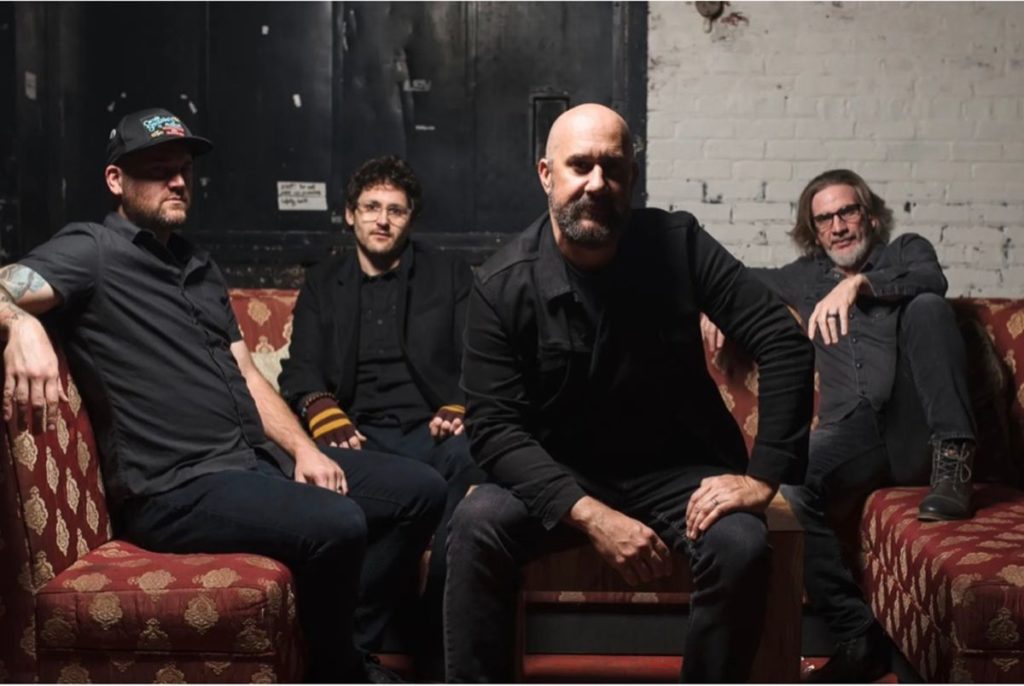
The Gone Ghosts is an Alt-Country Americana/Rock band from Carrboro NC, formed by singer/guitarist and songwriter Dave Hedeman and bassist Dillon Partin from The Vagabond Union. Joined by singer/guitarist Justin Bowlin and drummer Scott Jones.Dave started his music career fronting East Coast college favorite, Puddleduck from 1993 to 2000 before vanishing from the music scene for almost a decade.In 2008, while moving to Carrboro, Dave had a chance encounter with Jason Isbell, who he credits as his inspiration to re-engage with creating music. “I was moving from South Florida to Carrboro and stopped in Charleston to catch one of his shows at the Pour House,” he recalls. “After the show, I walked up to him and struck up a conversation. At one point I said, ‘I used to be a musician.’ He looked me in the eyes and said, ‘You still are.’” It was a pivotal moment. Dave found his spirit renewed. And another decade later, he’s bringing to life the lyrics that have haunted his subconscious. Dave hasn’t spent the intervening ten years laying low. Shortly after his move, he formed The Vagabond Union, based in Charleston, SC, with his long time friend John Kenney. They’ve released two albums with the band.Still, Dave felt he needed to give voice to deeply personal lyrics that didn’t seem right for The Vagabond Union’s mostly rock sound. So in the Spring of 2018, Dave formed The Gone Ghosts to lean more toward Americana and alt country sound that he holds dear. The Gone Ghosts set out to create their version of American rock music with songs fueled by love, loss and heartache.Links: Website | Instagram | Twitter | Facebook | YouTube
Beth Stelling

This is a seated show.Beth Stelling’s hour stand-up special Girl Daddy on HBOMax had The New York Times calling it “The Best Debut Special of the year,” adding, “It’s a virtuosic performance, conversational while dense with jokes.” Her half hour special is on Netflix in season one of The Standups (episode 5). Stelling has another half hour special on Comedy Central and many appearances on late night television (Conan, Jimmy Kimmel Live, Chelsea Lately, Lights Out with David Spade). Beth is a writer for Apple’s upcoming animated series Strange Planet, and previously wrote on shows such as The Last O.G., I Love You America with Sarah Silverman and HBO’s Crashing. She was an on-set writer and associate producer for Good Boys, a feature film produced by Seth Rogen and Evan Goldberg, and has since been a go-to hire for punch-up. She plays Ms. Fish on Peacock’s comedy Rutherford Falls.Links: Website | Instagram | Twitter | Facebook
Fred Armisen: Comedy for Musicians But Everyone Is Welcome
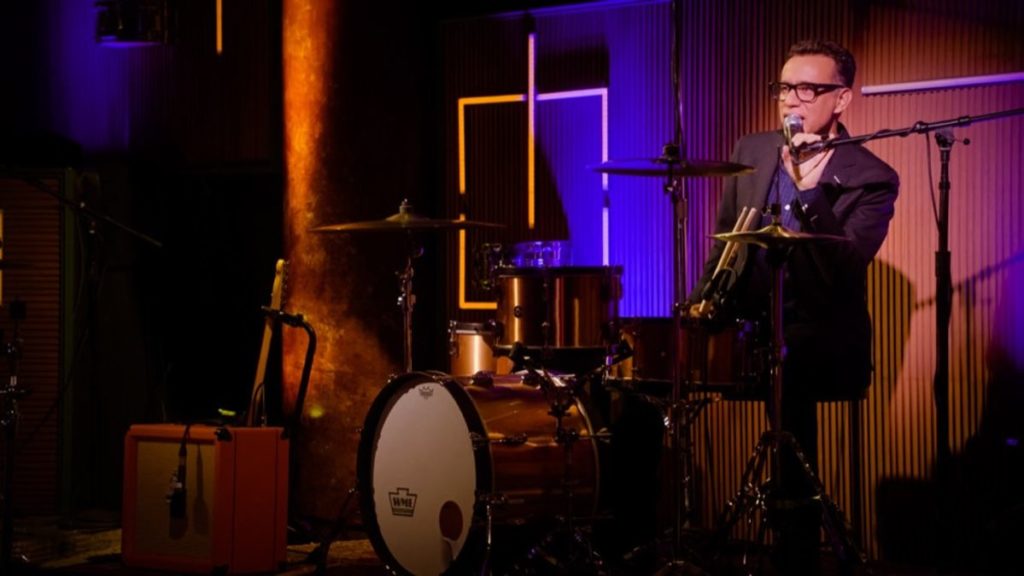
Links: Website | Instagram
Black Lips
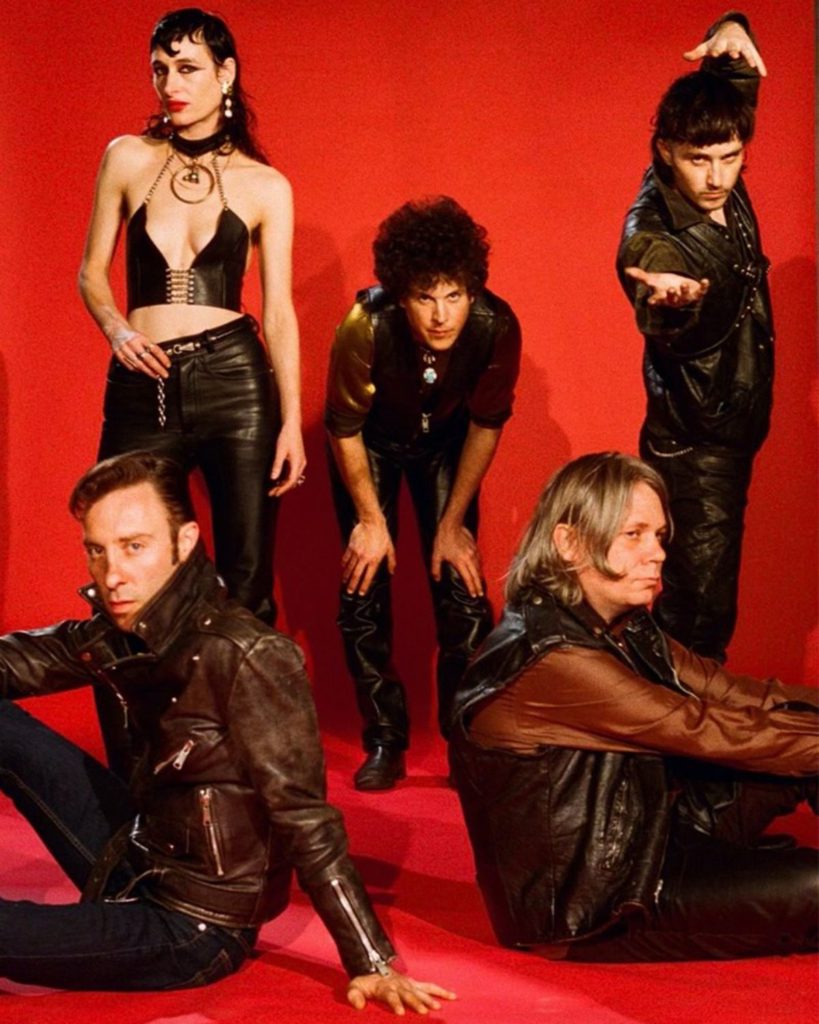
Boasting an unapologetic southern-fried twang, with a clang and harmony that is unmistakably the inimitable sound and feel of the Black Lips. Their songcraft and stylistic evolution are as infamous as their now legendary live shows. Last year the quintet saw the release of 2020’s Sing In A World That’s Falling Apart via Fire Records. Resulting in their grimiest, most dangerous, and best collection of songs since the aughts. The result of two decades of impulsive living, wild nights, and determined attitudes make up the Black Lips.Links: Website | Facebook | Twitter | Instagram | Spotify | YouTube
Spirit of the Bear
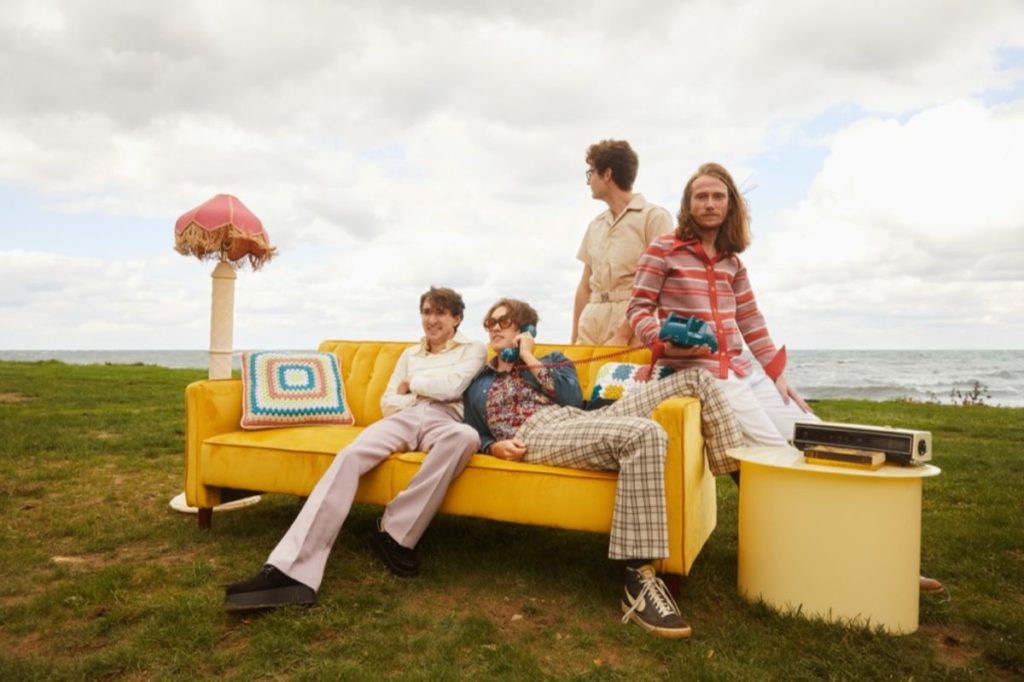
Spirit of the Bear quickly became one of the most fresh and exciting bands to emerge in the Ohio music scene with their unique blend of indie rock, pop, and electronic sensibilities coupled with their affinity for pop song writing. The band’s years of musical experience are accentuated by their use of two keyboard players, bringing a unique depth to their sound. Consisting of James Harker (lead vocals, guitar), Danny Svenson (keys, electronics), Ethan Schwendeman (keys), and Jamie Vitullo (drums), Spirit of the Bear’s upcoming EP is scheduled to come in summer 2022.Links: Website | Instagram | Twitter | Facebook | Spotify | YouTubeSlow Teeth are Robert Chamberlain, Justin Ellis, and Jeremy Haire. Sometimes dark, sometimes folky, sometimes heavy, sometimes electronic. Dynamics and catharsis. Triangle NC.Links: Instagram | Facebook
Girlpool
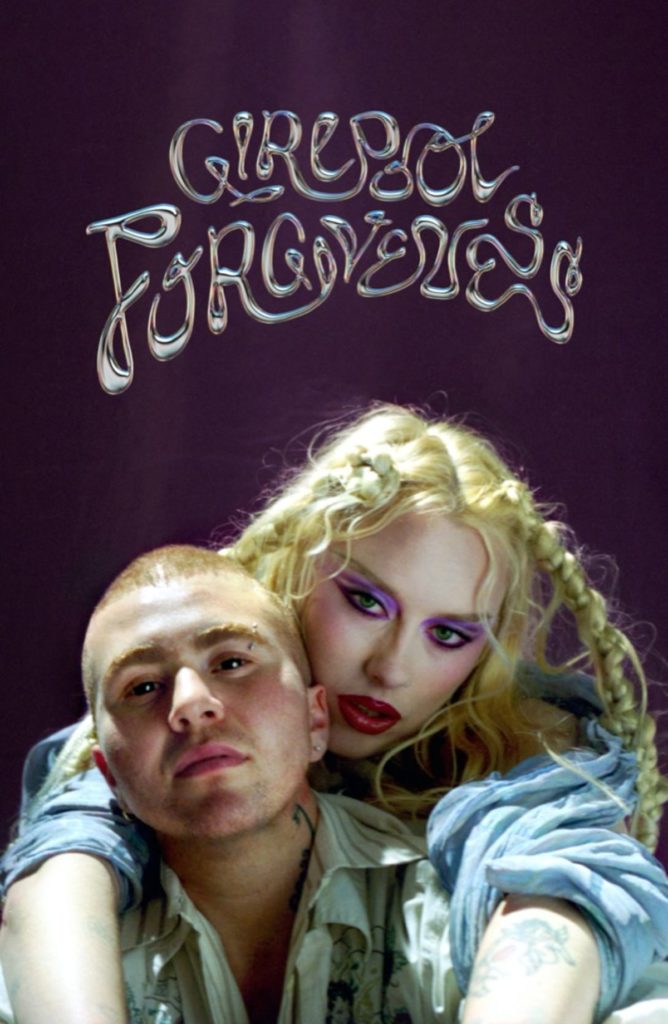
Avery Tucker and Harmony Tividad have been making critically acclaimed music as Girlpool since they were high schoolers, scurrying around Los Angeles’ all-ages concert spaces and skipping class to play gigs with their friends. As their radically minimal first full-length Before The World Was Big was winning them fans far beyond the DIY circles they came from, the duo was testing out life on the east coast, where they continued to translate the bittersweet beauty of late-adolescence into melodic punk and indie-pop. Their next two albums, Powerplant and What Chaos Is Imaginary, are sonic time capsules documenting their development — as songwriters, but also as humans, moving through the world together and separately.A few years ago, Girlpool returned full-time to their hometown of Los Angeles. Now in their mid-20s, Avery and Harmony are coming to terms with what it means to reengage with the sprawling sunburnt metropolis of their youth as adults. Unsurprisingly, they’ve started making songs that feel as complex and mysterious as the experiences that have shaped this tumultuous era of their lives. Enter Forgiveness, the brand new full-length Girlpool album, which finds the duo embracing weirdo-pop decadence without sacrificing the poetic curiosity that has always made their music so absorbing. Just like they did for What Chaos Is Imaginary, Harmony and Avery each wrote their Forgiveness songs separately, then came together to decide how to present them in a style that felt representative of what excites and inspires them now. This time, the process resulted in their slickest and most ambitious music to date, filled with idiosyncratic and provocative gestures that simultaneously support and complicate the emotionally intricate material. With its unique blend of introspective earworms and surreal party music, Forgiveness reaches beyond the loosely sketched parameters of “indie rock,” challenging any preconceived notions of what a Girlpool album can or should be. That growth manifests beautifully on “Faultline,” the new record’s woozily elegant first single. Every week keeps slipping by / in this imitation paradise, Harmony sings, her voice angelic-sounding atop a loungey, vertiginous groove. “Faultline” is an effective introduction to the world of Forgiveness, and not just because it alludes to the seismically tenuous landscape that backdrops several of the album’s songs. The notion of straddling a fault line feels somewhat indicative of Forgiveness on the whole. These songs investigate the always-shifting boundaries between a number of elementally human concepts: pain and pleasure, sex and love, reality and delusion, insecurity and confidence, grief and growth. “A lot of my songs on this record are about relationship dynamics where I experienced frustration and pain, and struggling to hold a lot of complexity in my emotions” Avery explains. “Writing Forgiveness helped me fit all those pieces into an acceptance: that my fate pushes me exactly where I need to go.” Harmony feels similarly: “A lot of life feels like unavoidable experiences to me,” she adds. “To me, Forgiveness is about accepting that concept. It’s about forgiving reality for having to be exactly what it is all the time.” Links: Website | Instagram | Twitter | Facebook | Spotify
Briston Maroney
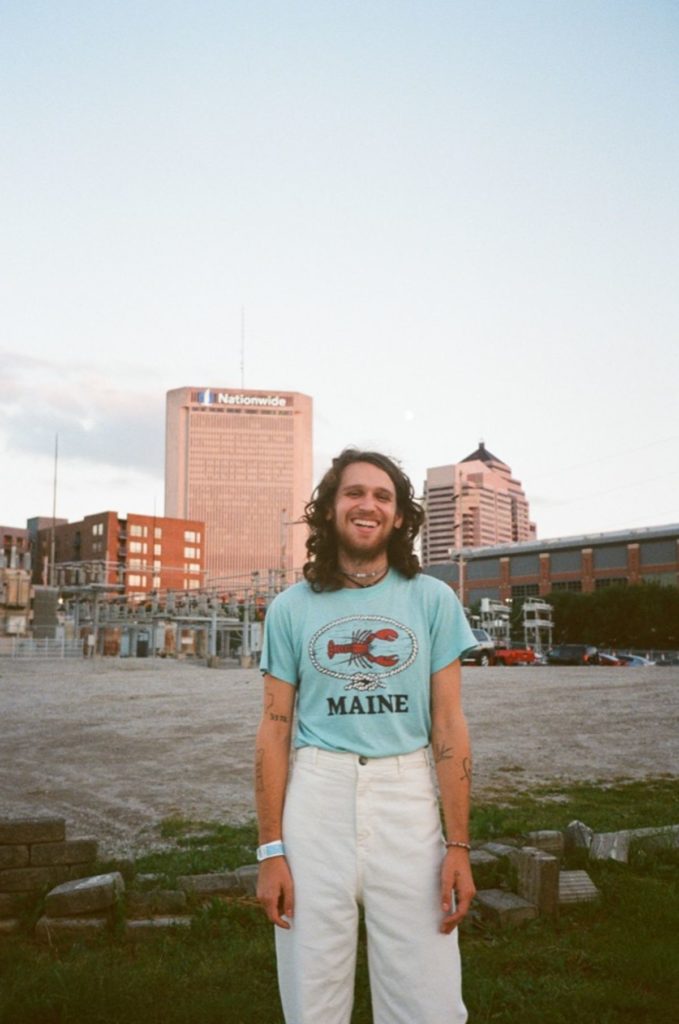
For Briston Maroney, it’s been a journey to arrive at the current moment. A mental, physical, emotional, and musical one. But it’s left him equipped: not only with a deep understanding of self, discovered through life’s trials and errors, but just as important, with a piece of art that reflects his personal growth. Sunflower, Maroney’s debut album, is the culmination of the past decade of the now-22-year old’s life. “It’s all of the things I’ve been stoked about since I was 12 coming together,” the wise-beyond-his-years, Nashville-based singer-songwriter says with a laugh of his striking album. “It’s been a literal and physical relationship with the record as far as coming to a point where I understand what parts of me it represents, what it means to me as a person and what it means for my entire life.”Recorded between the summer of 2019 and early 2020 in LA with acclaimed producer John Congleton, Sunflower is “definitely a milestone,” Maroney admits. “I’d be lying to say I didn’t feel a little bit of that. And why not let yourself enjoy it?” It’s also a gut-punch of fuzzy power chords (“Sinkin”) and genteel acoustics (“Cinnamon”); deftly-composed pop songs (“Freeway”) and hard-charging rockers (“Rollercoaster”). “I put all of myself into it,” Maroney adds of the 10-track LP. In retrospect, he adds, “I definitely have this sense of calmness now. I did what I was capable of doing and I’m just glad I was around my friends and my people to help me get to this point.”An energetic live performer with a craft first honed in basements, living rooms, and jam-packed clubs, Maroney quickly developed a style steeped in the sweat and sounds of Nashville’s DIY scene. After self-releasing his 2017 debut EP Big Shot and amassing a strong local fan base, Maroney ultimately attracted the attention of Canvasback Music. After signing with the label, his subsequent releases — Carnival (2018), Indiana (2019), and Miracle (2020) — remained entirely self-written with just a single producer credited on each project, namely Grammy Award-winning producer Tone Def and UK-based producer Jim Abbiss (Arctic Monkeys, Adele).When Maroney began to tour the US and Europe alongside other artists, co-writing sessions became commonplace as they created music together while on the road. It was at this point he made the conscious decision that he would seek out additional songwriters and producers to work with on his debut full-length project; as Maroney’s music world grew, so too did his desire for collaboration.While Maroney is the first to admit he was ‘terrified-in-a-good-way’ to be working alongside top-notch talents with the likes of Manchester Orchestra’s Andy Hull and venerated songwriter Dan Wilson on the creation of Sunflower, over time he came to understand a simple lesson. That being, “If you’re approaching what you’re doing from a place of love and kindness and passion you can be as open and flowing artistically as you want to be with your collaborators,” he says. “I learned a ton from writing with those people,” Maroney continues. “I think the biggest thing I took away is you get to decide how open you want to be, and you get to decide how much of a stage you want to set for emotions in songwriting.”Links: Website | Instagram | Twitter | Facebook | Spotify | YouTube | Soundcloud
Goodnight Texas
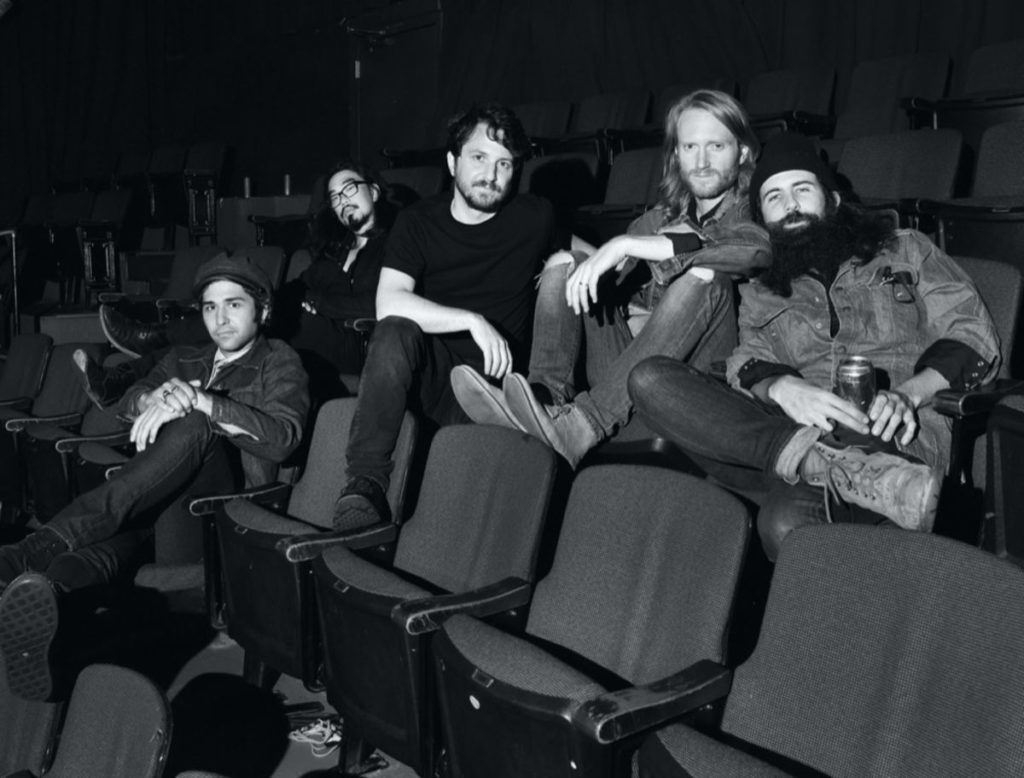
Goodnight, Texas Bio April 2022Conventional wisdom says the two frontmen of a band shouldn’t live on opposite sides of the United States, but that’s never seemed to deter Avi Vinocur and Patrick Dyer Wolf.Goodnight, Texas is a tough-to-define storytelling folk rock band whose strength lies in unexpected sweet spots. Drawing their name from Pat and Avi’s onetime geographic midpoint (the real town of Goodnight in the State of Texas, a tiny hamlet east of Amarillo directly betwixt San Francisco, CA and Chapel Hill, NC), the five-piece band also exists at the center of its songwriters’ contrasting styles — via a 1913 Gibson A mandolin and a 2015 Danelectro Baritone Guitar, at the crossroads of folk and blues and rock ‘n’ roll, in a place where dry wit and dark truths meet hope and utmost sincerity.The very top of 2022 brings the band’s highly anticipated fourth album ‘How Long Will It Take Them To Die’, a dark yet lighthearted shoebox of knick-knacks and newspaper clippings – perhaps reflecting on either the last two years of isolation, or the whole of American history. In true Goodnight, Texas fashion, complex but relatable characters and locations are still featured alongside stories of self-discovery, rowdy behavior and heartbreaking loss, but with a more honed sound. Thanks in part to the creative and performative talents of the lineup Scott Padden (drums, upright bass), Adam Nash (lead guitar, pedal steel, violin) and Chris Sugiura (bass), we hear Goodnight, Texas in a more detailed and developed way. Where past Goodnight, Texas albums have traveled cross-country and throughout the 19th and early 20th centuries, this new offering falls on a z-axis somewhere between the aurora borealis and six feet underground.Of the album’s first single ‘Hypothermic’, singer and co-songwriter Avi Vinocur says: ”Stories from different corners of the American past can often be dark and heavy. Our band’s music has always followed along, telling tales of fiction and non-fiction with sonic landscapes to match. Many of our past songs and albums had taken place in the American South, Northeast, Midwest, and Southwest – but I had written a story in my notebook of a character braving the frigid tundra of Canada by car, north toward the distant U.S. state of Alaska – through hallucinations, paranoia, and exhaustion – to escape something unknown. It matched the sinister sound of this strange heel-thumper I had been working with on guitar – and together they were a perfect pair. “Hypothermic” is the result – our attempt to tell stories of America’s furthest corner, under a darker headlight, and attempting to sonically capture the heaviness of not only America’s past, but its present.”In March 2020, as the world confronted a new indoor reality, two long minutes of the GN,TX mainstay “The Railroad” found themselves in the intro sequence of the first episode of Netflix’s “Tiger King,” which shattered streaming records with 34 million views in 10 days.Also in March of 2020, the band released its first live album: “Live in Seattle, Just Before The Global Pandemic.” Jonathan Kirchner recorded, mixed and mastered a weekend of October performances at Tractor Tavern that featured a newly expanded five-man lineup.Links: Website | Instagram | Twitter | Facebook | Spotify | YouTube
Tan and Sober Gentlemen
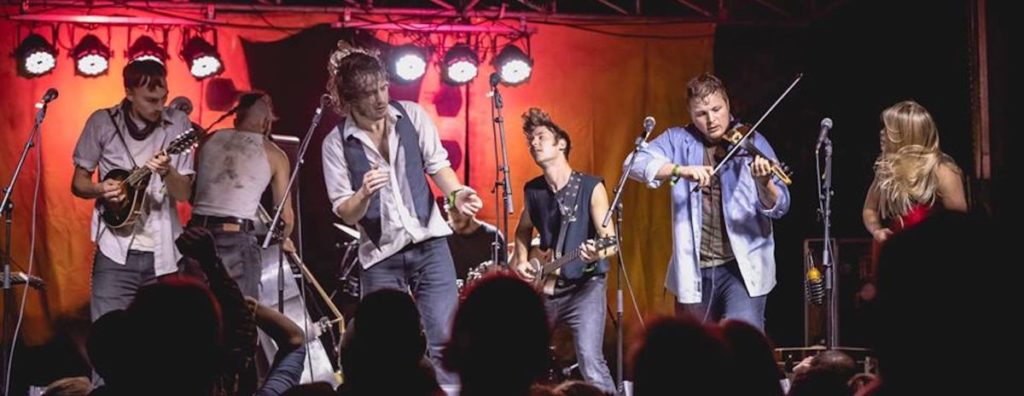
Born and raised in the North Carolina backcountry, The Tan and Sober Gentlemen began taking in the songs, stories, and tunes that make up their beloved state’s heritage before they could talk. Despite having played music together in some form or another for most of their lives, the current lineup was formed in the summer of 2016. Past performances range from the Cat’s Cradle, Shakori Hills Grassroots Festival, Appaloosa Festival, and IBMA’s World of Bluegrass in the States to Spraoi Festival, Whelan’s, and the Roisin Dubh in Ireland.The band aims to explore the Gaelic roots of North Carolinian music, and to play it with as much energy as humanly possible. Tan and Sober hangs their hat on the fact that, no matter the venue or the crowd, their live show will have the audience engaged, smiling, and drenched with sweat. As far as folk music goes, they’re about the best drinking and dancing band you’ll find.Links: Website | Instagram | Facebook | Spotify

